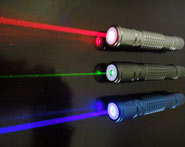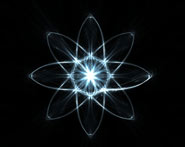


 الفيزياء الكلاسيكية
الفيزياء الكلاسيكية
 الكهربائية والمغناطيسية
الكهربائية والمغناطيسية
 علم البصريات
علم البصريات
 الفيزياء الحديثة
الفيزياء الحديثة
 النظرية النسبية
النظرية النسبية
 الفيزياء النووية
الفيزياء النووية
 فيزياء الحالة الصلبة
فيزياء الحالة الصلبة
 الليزر
الليزر
 علم الفلك
علم الفلك
 المجموعة الشمسية
المجموعة الشمسية
 الطاقة البديلة
الطاقة البديلة
 الفيزياء والعلوم الأخرى
الفيزياء والعلوم الأخرى
 مواضيع عامة في الفيزياء
مواضيع عامة في الفيزياء|
Read More
Date: 12-2-2021
Date: 21-12-2020
Date: 5-3-2021
|
Materials for spin electronics
The generic spin electronic device, consists of a source of spinpolarized electrons, a transport medium and an analyser. The ferromagnetic polarizer and analyser are often Co, Fe, Co–Fe or Ni–Fe. Half-metallic Heusler alloys with high TC such as Co2MnSi are also used. Other half-metals of interest include oxides such as LSMO and CrO2, but room-temperature device operation with these materials has yet to be demonstrated.
In principle, the spin transport medium can be almost anything that transmits electrons without completely destroying their polarization. In all-metal thinfilm stacks, Cu or Al is often used. Heavy metals introduce spin-flip scattering, due to their strong spin-orbit interaction. Semiconductors are very effective spin transport media because there are few impurities or other electrons to scatter the spin-polarized carriers. Electrical spin injection and detection are problematic in semiconductors because of the problem of resistivity mismatch between the metal and the semiconductor. Optical injection and magneto-optic detection are feasible for semiconductors with a direct bandgap, such as III–V materials. The problem of injection and detection is less accute for organic semiconductors.
Insulators are useful as spin transport media only when they are thin enough to permit tunnelling. Ballistic conductors such as graphene, and organic conductors where spin transport is by hopping and injection is controlled by the ferromagnet–organic interface, are also potentially interesting. The organics have miserable mobility, but there is a very long spin lifetime which may find an application.
Relevant electronic properties of some representative materials are summarized in Table 1. There is a broad palette, with opportunities for innovation.
Table 1. Some materials for spin electronics




|
|
|
|
دراسة يابانية لتقليل مخاطر أمراض المواليد منخفضي الوزن
|
|
|
|
|
|
|
اكتشاف أكبر مرجان في العالم قبالة سواحل جزر سليمان
|
|
|
|
|
|
|
اتحاد كليات الطب الملكية البريطانية يشيد بالمستوى العلمي لطلبة جامعة العميد وبيئتها التعليمية
|
|
|